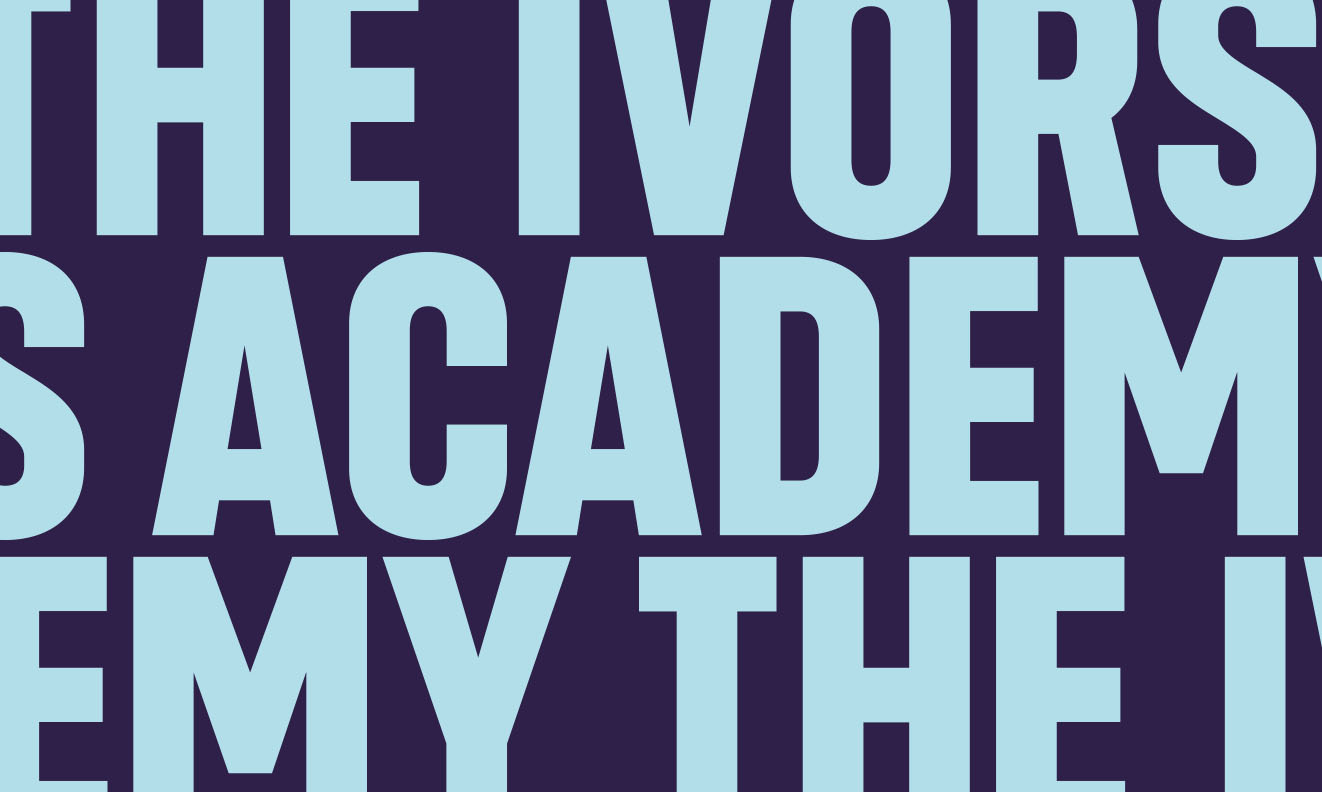Over the past ten years, I’ve had the privilege to work on our unique awards – The Ivors and The Ivors Composer Awards (previously the British Composer Awards). What makes an Ivor Novello Award (and previously a British Composer Award) so respected and prestigious is two-fold: categories are judged exclusively by music creators, so truly represent peer-recognition; and the panels focus solely on craft – the music, over the music creator. You are nominated or receive an award because your peers have deemed your compositions or songs to be exceptional and they want to celebrate that excellence.
And we are proud of the musical diversity our awards recognise. In the last twelve months we have celebrated music that uses digital technologies to provide the opportunity for disabled and non-disabled young musicians to play together in an integrated ensemble; a piece specially composed for a computer-designed half-ton double bell and a choral oratorio that is a dramatization of the biblical Book of Job; the score for a haunting supernatural drama for the BBC and Netflix; pioneering grime and one of the most recognisable and influential hard rock catalogues of all time. We create wonderfully diverse music in the UK and I’m proud that any playlist of music nominated across our two awards, over the last 64 years, would be an audio adventure to inspire.
Despite all this brilliance it would be remiss for us not to recognise that all too often the composers and songwriters nominated and winning don’t reflect the diversity within UK society. As such we’ve spent a great deal of time discussing ways we can encourage greater diversity here, without undermining the core principle that it is the music, not the music creator, that the award celebrates.
In order to retain this, and following much debate, we decided that the positive discrimination of introducing categories exclusively for under-represented groups is the wrong approach to improving diversity – it undermines that focus; for example, any female composer’s work ought to be fairly considered alongside that of all her peers, and truly recognised as the superlative amongst them as a reflection of its own character.
However, a crucial change that we’ve adopted across both The Ivors Composer Awards (since 2016 and across all categories since 2018) and The Ivors (from this year) is the anonymisation of all works considered. Judges are not given any information regarding the writer/s or composer/s behind any work they consider. This anonymisation is intended to take away any unconscious bias – judges aren’t considering how this work sits within a composer’s prior career, or influenced by a music creator’s reputation, gender or ethnicity; they judge only the music itself.
An area where the Academy is able to ensure diversity is in the selection of judges for all of its panels and awards committees. We are committed to ensuring a 50/50 gender split across all of these as well as a 30% BAME representation on each panel (based on a 17% UK constitution, increasing to 30% in London where most composers are based, as per latest census information). We also strive to ensure these panels have a good age range (without compromising the established and respected status required of the judges reviewing their peers), a high percentage of first-time judges, and a good breadth of genre representation, and geographical representation to ensure not all judges are based in London and the South East. As I’m sure members can appreciate, this isn’t always an easy task and on occasion we miss some of these targets, but we’re moving in the right direction and are committed to reaching real parity in representation.
Another area we’re keen to highlight is the entries we receive. Nominations and winners can only be selected from the pool of submissions entered. We must encourage all creators to enter if they have composed an eligible work and encourage the publishing industry, that also supports the awards by entering works, to consider the diversity of their signings too. We want to receive the most diverse range of music possible so the resulting nominations and winners can reflect and celebrate this.
So remember that anyone can enter both our awards, including the composers or songwriters themselves so please don’t necessarily wait for your publisher or agent to participate. I ask you all to please help us spread the word and encourage your fellow creators to put themselves forward for due recognition.





